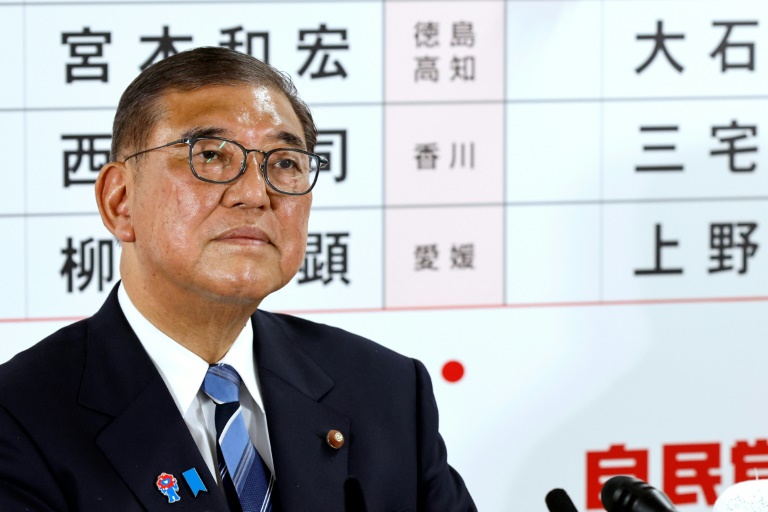UPDATE: In a stunning turn of events, Shigeru Ishiba has resigned as Japan’s Prime Minister, a position he held for less than a year. This urgent decision comes in response to the Liberal Democratic Party’s (LDP) dismal performance in the July elections, which has left the party scrambling for stability.
The 68-year-old defense enthusiast announced his resignation on Sunday, stating he will “step aside and make way for the next generation.” His departure follows intense pressure from LDP members who demanded accountability after the party’s worst electoral showing in 15 years, ultimately costing them their majority in both the lower and upper houses.
Ishiba’s tenure, marked by ambitious promises to revitalize rural areas and combat Japan’s shrinking population, faced significant challenges. After calling for lower house elections in October 2024, the LDP’s poor results prompted widespread dissatisfaction among voters, particularly over rising prices, including a staggering 100 percent increase in rice costs compared to last year.
Despite being viewed as a competent leader, Ishiba’s government faltered due to escalating public discontent. His cabinet, which included only two women compared to five under former Prime Minister Fumio Kishida, faced criticism for lacking diversity and responsiveness.
Social media turned Ishiba into a target for ridicule, mocking his clumsy public appearances and personal habits. An infamous moment involved him napping in parliament, which sparked a flurry of memes. Even his unconventional eating style drew laughter, with users on social media likening him to a child.
The resignation is a significant blow to the LDP, which has dominated Japanese politics since 1955. Ishiba’s brief leadership began in September 2024, making him the tenth LDP prime minister since 2000. His government struggled to maintain popularity, particularly in light of ongoing economic challenges and international tensions, especially with U.S. President Donald Trump over tariffs on Japanese vehicles.
While Ishiba did secure a recent reduction in U.S. tariffs on Japanese autos from 27.5 percent to 15 percent, the timing of his resignation raises concerns about Japan’s political future and its relationship with the United States.
As the LDP prepares for new leadership elections, the party faces the urgent challenge of restoring public faith and addressing the pressing issues that led to Ishiba’s downfall. Analysts are closely watching who will emerge as the next leader and how they will navigate the current political landscape.
Stay tuned for further updates as this story develops.
